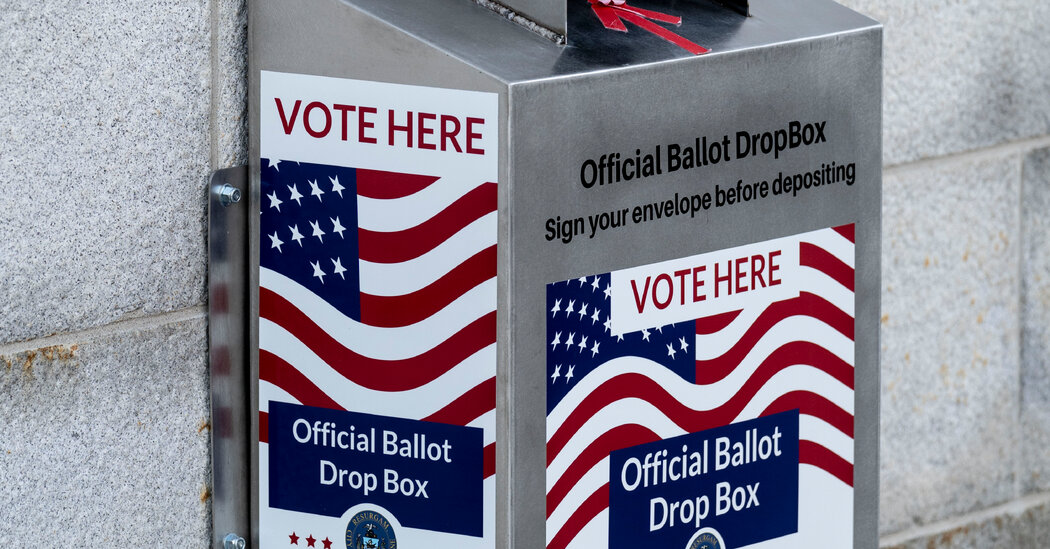Voters in Maine rejected a proposal backed by conservatives that would have created a raft of new restrictions to voting in the state, according to The Associated Press on Tuesday.
The proposal would have eliminated two days of early absentee voting, required photo identification in order to vote, banned prepaid return envelopes for absentee ballots and limited drop boxes across the state. The outcome is likely to be seen as a setback for Republicans in their quest to rein in the nation’s voting laws in states where they do not have complete control of state government.
The debate over voting procedures that followed President Trump’s false claims of widespread fraud after his loss in the 2020 election has escalated nationally. Mr. Trump, now back in office, has sought to overhaul voting procedures through executive orders, though courts have largely blocked those orders, and he has repeatedly stated a desire to end voting by mail across the country.
But voters in Maine came out in support of greater access to the polls. The state, which has the oldest population in the country, according to census figures, relies on multiple methods of voting, and many of the proposed changes would have especially affected older voters. The proposal, for example, would have eliminated the permanent absentee ballot list, which many older Mainers support.
Maine is also one of the more rural states in the country, with vast expanses of protected wilderness mixing with rural areas and far-flung coastal stretches. The proposal would have limited drop boxes to one per town, leaving some to have to drive many miles to access a drop box, and others, such as the city of Portland, restricted to a single drop box to service the roughly 40,000 voters who turn out for presidential elections.
In the 2024 election, about 160,000 Maine Democrats cast their absentee ballots by mail, compared with about 105,000 Republicans, according to data from the University of Florida’s Election Lab. In total, more than 360,000 voters in Maine cast a ballot by mail, or more than 40 percent of the overall turnout in the state for the 2024 presidential election.
The ballot initiative was backed by a conservative outside group known as Dinner Table Action, and the campaign broke down along party lines, with the Democratic Party opposing the ballot measure and the Republican Party supporting it.
Democrats and their allies proved far more successful at fund-raising for their effort, which largely came from out-of-state organizations, including the Democratic Governors Association and the American Civil Liberties Union. With one week until the election, more than $1.5 million had been spent in opposition to the proposal, compared with roughly $250,000 in support of it.
Nick Corasaniti is a Times reporter covering national politics, with a focus on voting and elections.
The post Maine Voters Reject Plan to Tighten Voting Rules appeared first on New York Times.




